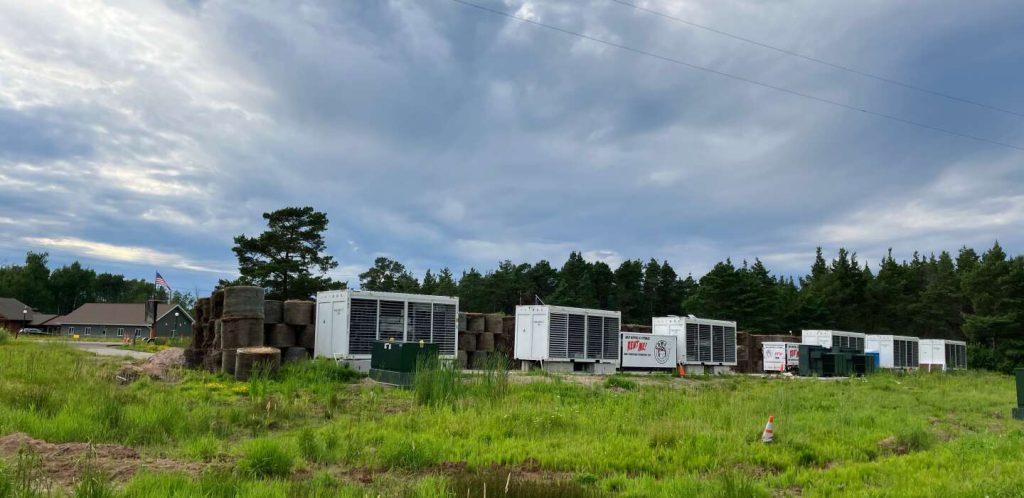Concerns Over Cryptocurrency Mining Noise in Michigan
(TNS) — A cryptocurrency mining operation along Mackinac Trail, located seven miles south of Sault Ste. Marie, produces an incessant, high-pitched metallic sound reminiscent of mechanical insects.
Initially detected at 75 decibels— comparable to a running vacuum cleaner—near Lake Superior Academy, this noise was recorded by Superintendent Susie Schlehuber.
At the school’s entrance, it measured 65 decibels, akin to a washing machine.
This constant whine began in March and, although attempts to mitigate it were made by placing hay bales around the site, it remains unabated except for a court-ordered two-week halt, as noted in a lawsuit filed by the school.
Schlehuber stated, “It’s 24 hours a day, seven days a week. It never stops.”
The school, which emphasizes environmental education, encourages its roughly 100 students to spend significant time outdoors.
“We notice the noise even more than a traditional school that remains inside with closed doors,” Schlehuber remarked, leading to halted outdoor lessons and plans for additional classrooms.
The mining facility consists of six self-contained machine banks and is owned by Odessa Partners LLC, based in Boca Raton, Florida.
Legal documents reveal that Odessa is tied to two other entities: Wyoming Partners Irrevocable Statutory Trust from Cheyenne and Valletta Corp, LLC from Delaware, both associated with Michael Carbonara, CEO of Ibanera, a fintech platform.
Following the Chippewa County Circuit Court’s temporary shutdown of the operation, Odessa Partners claimed a daily loss exceeding $15,000 due to the halt.
The company argued in court papers that the noise from their operation is less disruptive than typical sounds from Interstate 75, which borders the school.
However, Schlehuber asserted, “There’s a huge difference between a loud truck going by a few times a day and constant noise.”
She expressed frustration over the lack of meaningful dialogue with Odessa since March.
Understanding Cryptocurrency Mining
Cryptocurrency mining relies on substantial computing resources to solve random number problems, contributing to a public ledger that records transactions.
This process ensures that unverified transactions receive unique digital fingerprints, though success in mining demands significant luck—computers must navigate cryptographic algorithms that yield unpredictable results.
The energy consumption required for mining is substantial; mining one bitcoin is equivalent to the energy usage of an average U.S. household over 39 days.
This is why places like Sault Ste. Marie are appealing to mining operations, as noted by Kevin Shaw, CEO of OOM Technologies, which hosts cryptocurrency computers nearby.
Cooling costs, which can account for up to 40% of energy use in data centers, make the region’s cold climate advantageous for these operations.



